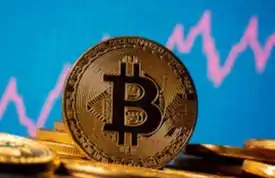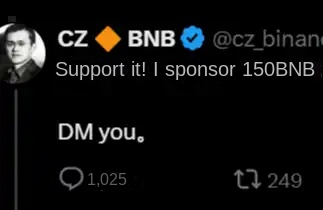Cash reserves have exceeded the market value of Ethereum. A review of Buffett's "escape from the top" performance in the past 20 years
Original title: "Buffett's amazing operation again! Berkshire's cash exceeds Ethereum's market value, reviewing his 20-year brilliant record of escaping the top"
Original author: James, BlockTempo
Warren Buffett's investment company Berkshire Hathaway released its second quarter 2024 financial report last Saturday, showing that the company cut nearly 50% of its Apple shares in Q2, and its cash position soared by US$276.9 billion, setting a new record high.
At that time, some analysts believed that Buffett's massive sale of Apple shares was likely due to his pessimism about the stock market and economic prospects, so he chose to have a lot of cash. Now, with the collapse of US and Asian stock markets in recent days, the community once again admires Buffett's acumen in successfully escaping the top.
Interestingly, the cash on hand of Berkshire Hathaway has successfully surpassed the market value of Ethereum when Ethereum once fell below $2,100 this morning. And this is only the cash that the company can currently use, which once again exclaims its strong capital strength.
A review of Buffett's record of escaping the top in the past 20 years
Buffett is often called the master of escaping the top. The following is a review of Buffett's brilliant history of escaping the top in the past 20 years.
Technology Bubble in 1999: Don’t touch industries you don’t understand
In 1999, the Internet bubble reached its peak, but Buffett adhered to the principle of “not making money beyond your ability” and refused to invest in unfamiliar technology stocks. Despite being questioned, he insisted on not participating in “games where others have an advantage over me” and believed that the market value of U.S. stocks had greatly exceeded economic growth at that time, and the performance of the Dow Jones Industrial Average in the next 17 years would not be much better than that from 1964 to 1981, unless the market fell.
The stock market once slapped the stock god in the face. When the S&P 500 rose 21% and the Nasdaq rose 66%, Berkshire Hathaway’s market value fell by nearly 20%, marking the second worst performance since 1990. At the end of the year, Buffett also appeared on the cover of Barron’s Weekly with an article titled “Warren, what’s going on? 》 wrote that "After more than 30 years of unrivaled investment success, Buffett may have lost his magic."
However, in March 2000, the Internet bubble finally began to burst, and it completely subsided in 2001, and Buffett successfully escaped the top.

Comparison of the performance of Berkshire Hathaway and Nasdaq during the dot-com bubble.
2008 Financial Crisis: Others are fearful, I am greedy
The global financial crisis broke out in 2008, and the Dow Jones Industrial Average fell 52% from its peak to its lowest point. Both technology stocks and traditional stocks fell sharply. However, when the market was pessimistic, Buffett published "Buy American. I AM." in the New York Times in October 2008, writing the classic saying "Others are greedy, I am fearful, others are fearful, I am greedy".
In September and October 2008, Buffett began to buy stocks at the bottom, buying a large number of shares of Constellation Energy, Japanese automaker Tungaloy, Goldman Sachs, BYD, General Electric and other companies. Wells Fargo, which Berkshire Hathaway holds a stake in, acquired Wachovia for $15.1 billion.
After buying stocks at the bottom, Buffett was stuck for a while. Goldman Sachs' stock price fell from more than $125 to $53, and General Electric's stock price fell from $22.15 to $14.03. However, Buffett bought preferred stocks with a fixed income of 10% per year. Unless the company went bankrupt, he could reap huge profits every year.
Five months after the publication of "Buy American. I AM.", the U.S. stock market began to bottom out and rebound, ushering in a 10-year bull market. Buffett and Berkshire Hathaway's assets leaped again. The investment during the financial crisis alone earned him more than $10 billion in returns.
2020 Epidemic: Cash is King, Waiting for Opportunities
The outbreak of the new crown pneumonia epidemic in 2020 caused a global stock market crash. Berkshire Hathaway held a large amount of cash and waited for an opportunity. After the epidemic, it began to invest heavily in the Japanese stock market. Since 2020, he has invested 1.6 trillion yen in the five major trading companies. As of the end of last year, it has increased in value to 2.9 trillion yen, with a profit of 8 billion US dollars.
Summary
However, it should be added that Buffett's actions do not always perfectly predict the market top, and sometimes he will miss some investment opportunities, but Buffett's history of escaping the top provides investors with valuable experience. Although Buffett has not yet explicitly stated that it is time to escape the top, the high cash reserves also show his cautious attitude under market uncertainty.
Original link
欢迎加入律动 BlockBeats 官方社群:
Telegram 订阅群:https://t.me/theblockbeats
Telegram 交流群:https://t.me/BlockBeats_App
Twitter 官方账号:https://twitter.com/BlockBeatsAsia
 Forum
Forum OPRR
OPRR Finance
Finance
 Specials
Specials
 On-chain Eco
On-chain Eco
 Entry
Entry
 Podcasts
Podcasts
 Data
Data

 Summarized by AI
Summarized by AI







